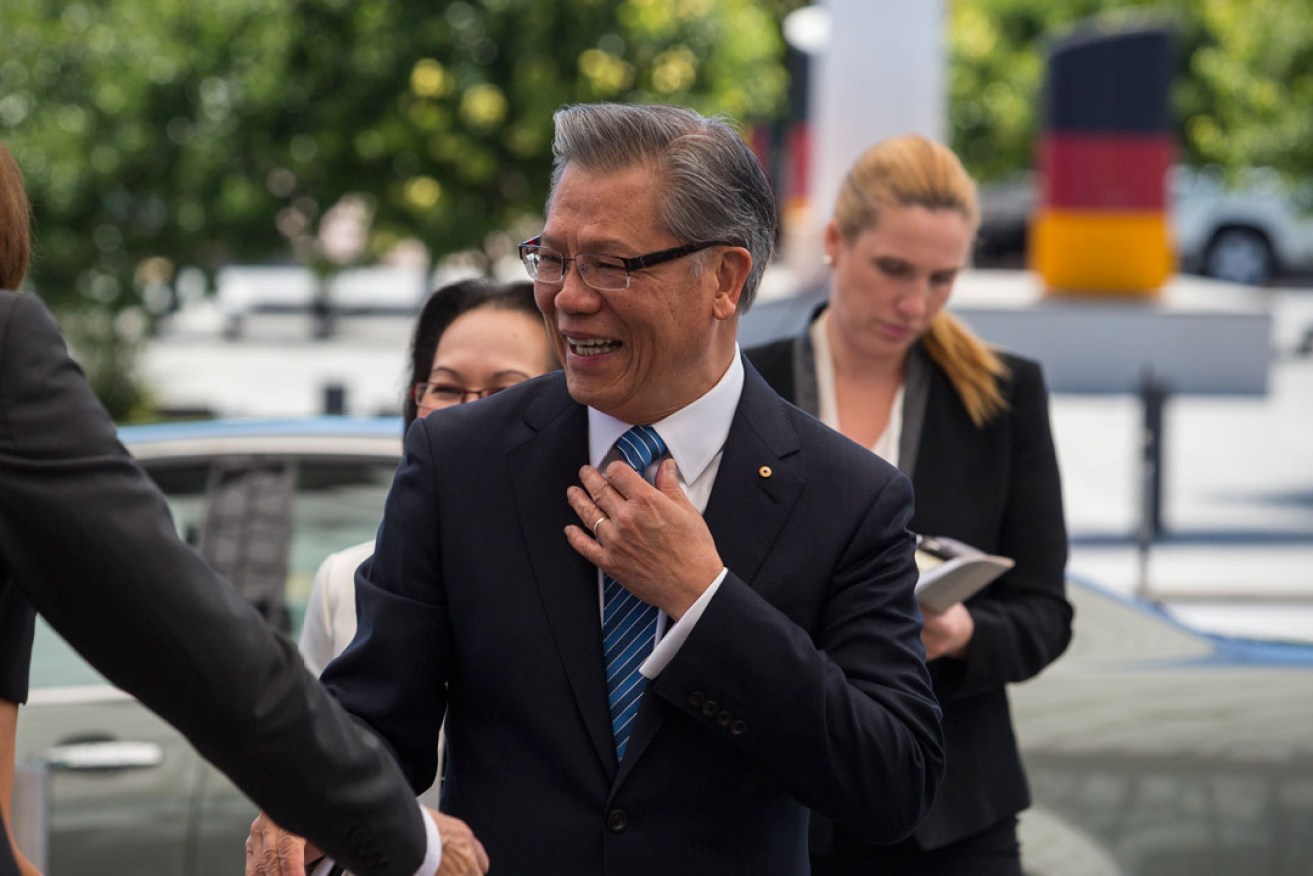Happy Refugee Week, Mr Dutton
Instead of viewing refugees as a threat, Australians should celebrate their economic and social contribution, writes Andrea Michaels, whose own family arrived in Adelaide as refugees in the 1970s.


SA Governor Hieu Van Le - one of many refugees who have made a significant contribution. Photo: AAP
Immigration Minister Peter Dutton made headlines recently with comments that really worried me. His claims that many refugees were illiterate and a threat to Australian jobs caused some people to shake their heads and others to speak out publicly, sparking a national debate.
Given this is the beginning of Refugee Week, I want to take a closer look at the positive contribution refugees have made to Australia and to dispel some myths that seem to have clouded Mr Dutton’s views.
I have to say upfront that this is personal.
My family are Cypriot refugees who lost everything in the 1974 Turkish invasion. We made our way to Adelaide (via London, where I was born) in 1976. I have two brothers who were six and eight when my family suddenly had to leave their home. We came from a northern village where primary school was the extent of the local education. Obviously no one spoke English. Like many other refugees, we came to Adelaide to start a new life in a safe place.
Hard work was part of that. My father started his own cabinet-making business and both my parents worked seven days a week. Like many refugee families, to my mother and father the education of their children was critical. We were known as “wogs” at school, and that sometimes made me feel like an outsider, but it also provided me with resilience and a determination to succeed.
After university I worried whether I would get a job. I didn’t exactly fit the typical lawyer mould. Wrong culture, wrong gender, wrong class.
This was reinforced by interview questions about what country I was from, what work my parents did, what school I went to. My high distinctions and work experience didn’t seem to count as much to some people. But luckily those people were in the minority and I was one of the lucky ones to land a very good job after graduation.
But now, nearly 20 years on, I’m afraid we may be going backwards. The thought that some Iraqi refugee is going through exactly the same thing all these years later really bothers me. Who cares if they have a “funny name” or their skin is a different colour? Are they smart? Will they work hard?
Mr Dutton said he was concerned refugees were not numerate or literate in their own language, let alone English; that they would take Australian jobs; and that many of them would languish in unemployment queues. But I think it’s time to look at some facts.
Accepting refugees costs money in the form of resettlement expenses. The Humanitarian Settlement Service provided by the Department of Immigration includes an orientation program, referral program to relevant agencies and help finding accommodation and English lessons. The department expects settlement outcomes from these programs to be reached between six and 12 months of arrival. Refugees get no more or no less than any other social security recipients.
But those short-term costs are far outweighed by the economic and social contributions these people make to Australia. Refugees contribute to local economies through expanding consumer markets, bringing new skills, creating employment and filling empty employment niches.
And because there is a younger age profile in our humanitarian intake, we can expect a significant contribution to three key factors that influence economic growth: population, participation and productivity.
The 2015 Intergenerational Report predicts we will have double the number of people over the age of 65 by the 2050s and relying on our birth rate alone will see a reduction in our population. A sustainable welfare system must have a young, hard-working labour force to pay for it.
There are also numerous success stories of rural settlement programs. Yes, taking those “Aussie jobs” that Aussies don’t want to do and, in the process, saving rural towns and businesses. In South Australia, for example, we have programs in Murray Bridge, Mount Gambier and the Riverland.
We also know that there is a higher level of entrepreneurialism in refugees and higher business survival rates (65 per cent vs 55 per cent for native-born Australians and immigrants from English-speaking countries, according to a 2010 Refugee Council of Australia report). Foreign trade links are stronger, as seen with groups such as the Vietnamese and Eastern Europeans. And importantly, education and employment outcomes of children of refugees and non-English speaking migrants exceed the average of third or later-generation Australians.
Most Australians enjoy our vibrant and diverse society, enriched by cultural contributions from all over the world. In fact, almost half of all Australians were either born overseas, or have a parent that was. And many others can easily trace a foreign ancestor that landed on these shores looking for a new life.
The United Nations estimates there are now 60 million people forcibly displaced from their homes. Last year (2014/15) Australia accepted 13,750 refugees.
Success stories from people like the SA Governor Hieu Van Le, Frank Lowy, Dr Karl Kruszelnicki, Les Murray, comedian Anh Do, and young sporting heroes like Sudanese-Australian Sydney Swans AFL player Aliir Aliir, plus many more, are proof enough for me that refugees have made, and will continue to make, a positive contribution to Australia that we should all be proud of.
Happy Refugee Week, Mr Dutton.
Andrea Michaels is a tax law specialist and managing director of Adelaide firm NDA Law.




